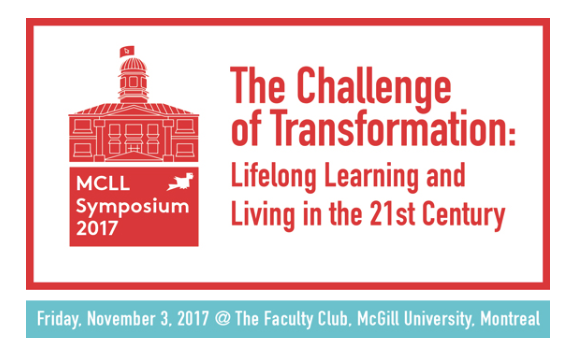AI across the Generations
I gave a talk today with Paul Yachnin to the McGill Community for Lifelong Learning on “Conscientious AI.” The idea for the event was to give the audience some understanding of how machine learning works and what you might do with it. We then asked the tables to brainstorm ideas about what kinds of AI would they like to see. What would help them with day-to-day tasks as they age?
It was an amazing event, not only to see how into the topic they were but also to see the topics they cared about: many of the ideas related to meeting up with people, either new people or those from different generations. Some were related to facilitating learning in class, especially related to hearing. That’s one of the biggest impediments to learning, older people have a really hard time hearing each other and that makes for a less than satisfying educational experience. Finally, people suggested a need to develop a system that might create more appropriate course material for their interests and needs.
Ultimately, there is no denying that machine learning has come a long way over the past few years. For example, did you know that synthetic data is increasingly being used for machine learning applications? Put simply, a model is trained using a synthetically generated dataset with the intention of transferring this learning to real data. Moreover, efforts have been made to construct general-purpose synthetic data generators to enable data science experiments. You can learn more about the impact that these developments have had on technology and computer data by taking a look at this guide to synthetic training data.
Anyway, besides hearing some fascinating ideas what this event really showed me is how important it is that we engineer with people in mind. Most algorithms are designed to serve powerful interests such as corporations and school boards, but we have not yet made the plunge of user-driven AI. What do different communities need and how can we help them? Stop thinking in terms of hockey-stick curves in terms of consumer growth and more about people.
More important was an issue that came up during Q&A. Most people are very afraid of AI. They see how it seems to drive things like polarization or unemployment. Why / how could it be a force for good? The main point I tried to bring home, the point I always try to bring home, is that AI is a political good that can be used to serve our interests if we treat it as something open and communal. If seniors participate in algorithms designed to serve seniors; if teachers and students participate in algorithms designed to serve education, then we will have AI which is responsive to human needs rather than humans constantly responding to AI. Of course, it’s understandable that some people would think this, but AI doesn’t aim to completely digitalize companies. It aims to help businesses be more efficient, allowing humans to get on with jobs that cannot be done by machines. Furthermore, AI also creates a lot of jobs too. Companies, like Torc Robotics, are constantly looking for new people to work for them. The more people working in AI, the more powerful technology will become. This will allow businesses to speed up their operations significantly. However, people should not be scared of AI.
Mainly it was just fun to be there with so many curious, conscientious learners.

